Granges loop: snowshoe Vallorcine
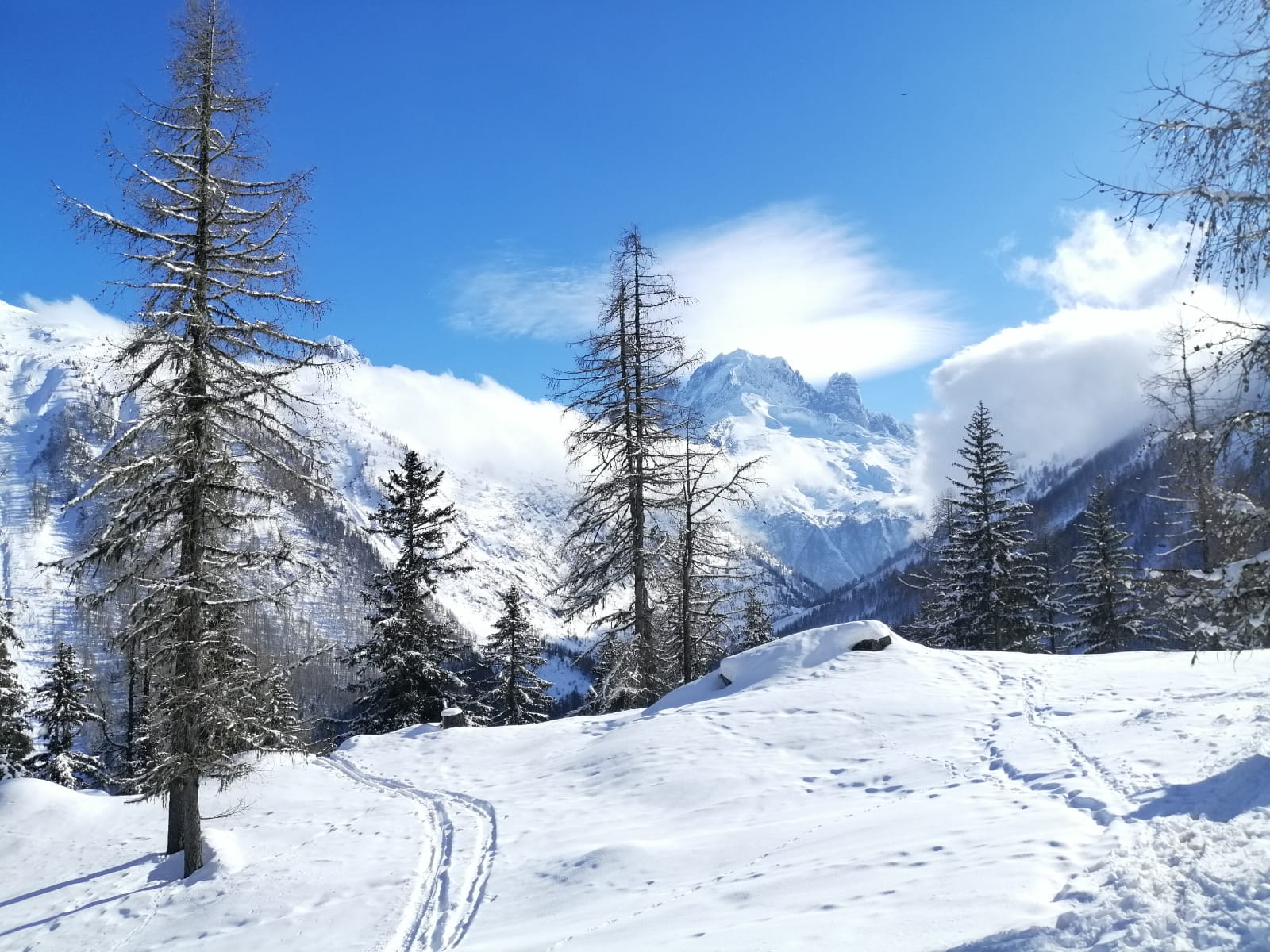
Vallorcine
Granges loop: snowshoe Vallorcine
Easy
1h20
3,6km
+249m
-249m
Embed this item to access it offline
A lovely loop towards the traditional village of Les Granges, with exceptional views of the Aiguille Verte and the Mont-Blanc massif. A family-friendly route for an easy snowshoe hike.
Attachment
- Downloadpdf
boucle-des-granges-raquette-vallorcine
Credit: Points d'intérêts du parcours - Asters-CEN74
4 points of interest
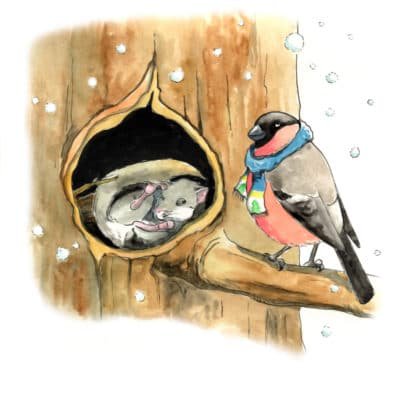
@brindenature  Fauna
FaunaHibernation or overwintering?
Many animals adapt their behaviour during the winter by hibenating or overwintering. Insects and birds, for example, hibernate. The marmot is known to hibernate. From the end of September, it takes refuge in its burrow and sleeps soundly until April. During this hibernation period, it is in a "comatose state": its heart beats 5 times per minute and its temperature drops to around 10 Celsius (the temperature may somewhat vary, depending on the ground temperature). Overwintering = spending the winter in a sheltered hideout Hibernation = spending the winter sleeping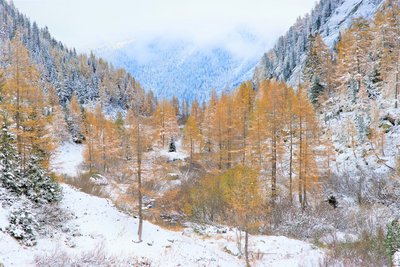
@JulienHeuret  Flora
FloraLarch forest
Larch forest is an ecosystem with high biodiversity and one of the best refuges for mountain animals. Larch is the only conifer in Europe to shed its needles! They turn yellow and fall off in autumn.
These needles are essential for the soil and the ecosystem: once transformed into humus, they facilitate the growth of other plant species. In spring, new flexible needles grow back in a form of a bouquet.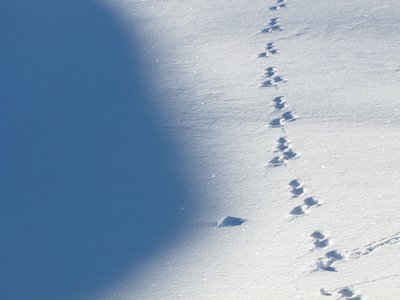
@geoffreygarcel  Fauna
FaunaThe European brown hare
The brown European hare lives in forests. The mountain hare, known as the "white coat", lives in the upper part of the forest and in the mountain pastures. Like rabbits, these mammals are lagomorphs and can be distinguished by the length of their ears. The brown hare has longer ears and a more slender shape. The hare's coat changes with the seasons to blend in better and hide from predators. The white coat hare is a nocturnal animal, building shelters under the snow so as to sleep during the day. Please ensure that you stay on the trail at all times, as you could accidentally trample its hideout!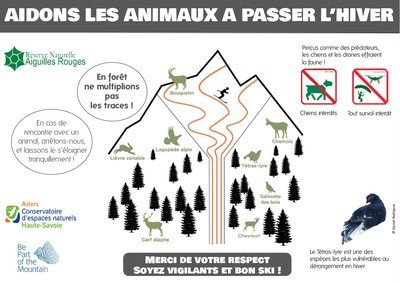
@Asters  Fauna
FaunaWhat to do if you encounter a wild animal?
During the harsh winter conditions, animals have no other choice than trying to survive, one day at a time. Our presence on their territory will obviously disturb them, and even frighten them; so let's try to minimize this disturbance: - Stop and wait quietly untill the animal goes away. - Do not shout or make sudden movements which would stress the animal even more. - Do not try to approach it nor follow it.
Description
From the village of Le Couteray, follow the forest track north towards La Loriaz. Take the signposted path after a sharp bend. At the highest point on the signposted path (1580 metres), turn left towards Les Granges. At the cliff (former sheepfolds), go back down to the left towards Le Lay - Le Couteray.
- Departure : Parking « Buet / Couteray »
- Arrival : Parking le Buet / Couteray
- Towns crossed : Vallorcine
Altimetric profile
Sensitive areas
Along your trek, you will go through sensitive areas related to the presence of a specific species or environment. In these areas, an appropriate behaviour allows to contribute to their preservation. For detailed information, specific forms are accessible for each area.
- Impacted practices:
- Aerial, , Land, Vertical
- Contact:
- Asters - Conservatoire d'espaces naturels de Haute Savoie
contact@cen-haute-savoie.org
Recommandations
Before setting off : - Find out about the weather conditions: adjust your equipment accordingly. - Hike along signposted routes at your own risk. - Walking times are given as an estimate only. Please note: Trail conditions are subject to change, so be sure to check weather conditions before setting off. Trail access subject to weather conditions. For more information, contact the Chamonix High Mountain Office: +33 (0)4 50 53 22 08. https://www.chamoniarde.com/ What should I do if I come across a wild animal? The harsh conditions of winter leave animals no choice but to try and survive on a day-to-day basis. Our presence in their territory will not only upset them, it may even frighten them. So let's try to keep the disturbance to a minimum: - Stop and let the animal calmly move out of the way. - Don't shout or make any sudden movements so as not to stress the animal further. - Don't approach the animal nor follow it.
Information desks
183 Route des Confins, 74660 Vallorcine
Transport
Stop at the Le Buet SNCF train station, which is served by the TER Mont Blanc Express line, then walk along the road to the village of Le Couteray on your left. https://www.chamonix.com/gares-et-arrets-de-train/arret-sncf-le-buet
Access and parking
Take the D1506 from Chamonix via Argentière and le Col des Montets or from Switzerland via Martigny, le Col de la Forclaz and le Châtelard.
Parking :
Parking Le Buet
Accessibility
- Emergency number :
- 114
Report a problem or an error
If you have found an error on this page or if you have noticed any problems during your hike, please report them to us here:
